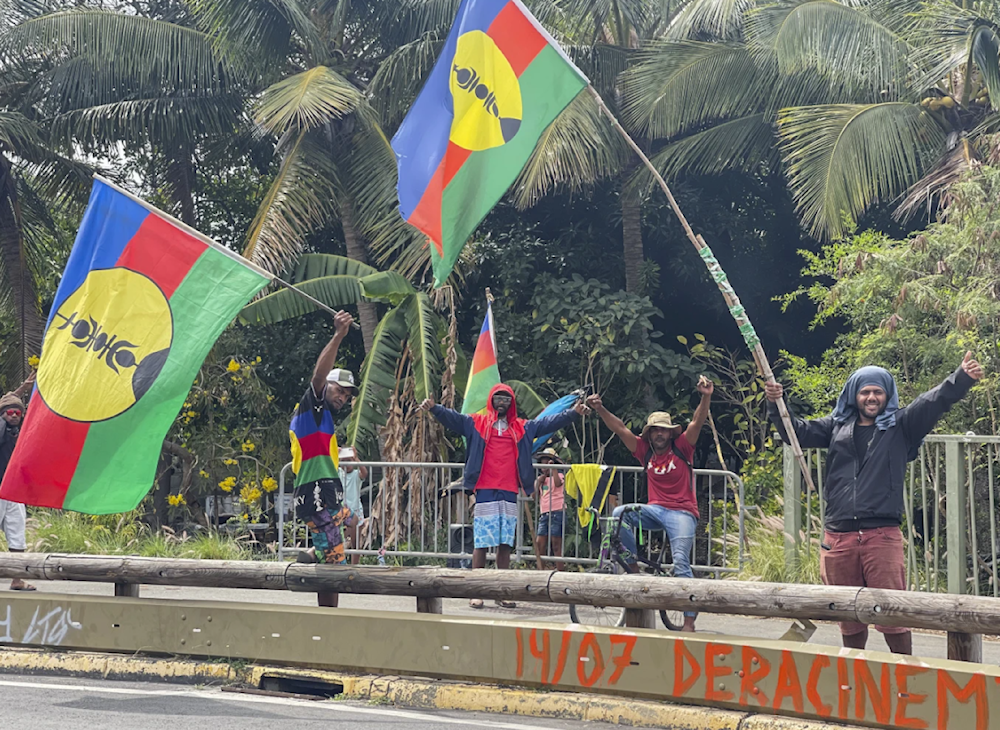Curfew lifted in New Caledonia over 6 months after violent riots
The curfew imposed in May in New Caledonia due to violent protests was officially lifted on Monday following an improvement in security.
-

Indigenous Kanaks wave independent flags during the 171th anniversary of France's takeover of the Pacific Archipelago in New Caledonia, French Pacific Islands on September 24, 2024. (AP)
A curfew in the French overseas region of New Caledonia, imposed in May in response to violent rioting, was formally lifted on Monday, officials said.
The curfew has been gradually relaxed over the last few months, but it remained in effect from midnight to 5 a.m. local time, according to a statement from the French High Commissioner's Office in the capital Noumea.
The decision to suspend the curfew followed an improvement in the security situation on the Pacific island nation, which saw significant upheaval earlier this year.
The statement detailed a restored public order, notwithstanding persistent protests in several sensitive places.
"Today, despite incidents that persist in some neighborhoods, public order has been restored, and a return to normal life is underway," it said.
Along with the elimination of the curfew, limitations on carrying and transporting guns without a justifiable purpose have been repealed but ammo sales remain capped at 50 rounds a month for licensed hunters.
A recap
New Caledonia, with a population of about 270,000, was rocked by unrest in mid-May, sparked by French plans to impose new rules that would give tens of thousands of non-indigenous residents voting rights.
France deployed thousands of troops and police to the archipelago, located nearly 17,000 kilometers (10,600 miles) from Paris. The violence resulted in hundreds of injuries and an estimated material damage of around 2.2 billion euros ($2.4 billion).
In mid-September, security forces shot and killed two men during an overnight operation, according to the public prosecutor on Thursday, bringing the death toll to 13 following months of unrest in the islands.
The contentious measure to reform electoral procedures would have enabled French citizens who have resided on the island for at least ten years to vote in municipal elections.
However, local inhabitants, notably the indigenous Kanak minority, were concerned that the reforms would reduce their voting strength.

 2 Min Read
2 Min Read










